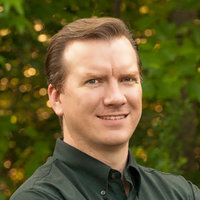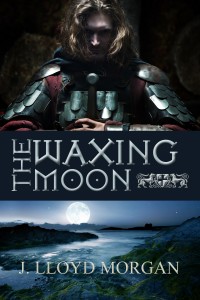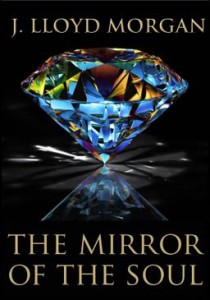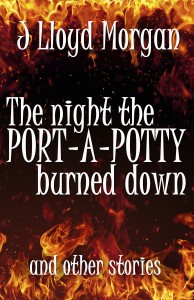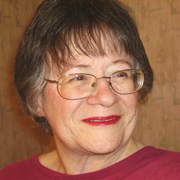First of all, the J. stands for Jason (one of my favorite names… :D). Apparently another writer by that name started publishing first, so today’s featured author had to scramble for an original pen name. While he writes novels and is best known for his series that began with THE HIDDEN SUN, Jason has also written memoir and short stories. In fact, his story “The Doughnut” was one of the top five winners in the Parables for Today contest. But more about his short stories later.
Me: First of all, how did you and your family weather Super Storm Sandy there in North Carolina? Anything in particular that you did to prepare? And did it live up to its billing?
Jason: I posted this on Facebook on Monday, October 29th: “The storm to end all storms has moved beyond North Carolina–but not before I was frightened to death by the media outlets. Upon further reflection, I may have resorted to cannibalism too soon.”
To be fair, we were on the far edge of the storm–very little rain and some mild gusts of wind. We’ve had much worse storms that never got the national attention this storm received.
(Well, we’re glad you don’t live in New York or New Jersey…and Jason and I are both very sorry for those who got the worst of Sandy.)
Me: You’ve said you’re dyslexic. How old were you when you were diagnosed and how did it impact your experience with reading as a youth? (Also, I’d love a picture of you at the age you were diagnosed.)
Jason: Back in the day, dyslexia wasn’t really understood as it is now. There are different aspects of it–the common thread is how the brain processes information. In kindergarten, I failed “knows the difference between left and right.” Later, I did poorly in spelling. When I read and write, I add or leave out extra words that my mind sees as being (or not being) there. When I was in high school, we learned about dyslexia and it was like a revelation. After taking some tests, it was verified that I have a form of it.
Growing up, I felt stupid because other kids were able to spell words without really trying. I just couldn’t get it. It takes lots of practice and, frankly, spell check has allowed me to become a writer. (Let’s hear it for spell check!) Alas, I don’t have a picture of me at that age. (Oh, well. Disappointment happens.)
Me: I see you were a BYU Communications major like me. Given the fact that you ended up on the broadcasting side before taking on novel writing, I’d like to hear how your experience in television has helped prepare you for your career as an author.
Jason: While directing in the NYC area, I was able to meet a boatload of diverse people: politicians, entertainers, reporters and anchors, engineers, technicians–and many more. I’ve drawn on those experiences for characters in my books. (Hmm…I wonder which character was inspired by Dan Rather?)
Directing live TV taught me the importance of pacing. It’s another skill that has transferred from TV to writing. In addition, we had a saying: “5 o’clock comes at the same time every day.” Either you’re ready for the broadcast or not. It taught me to set deadlines and stick to them.
Me: The first two books in your series, The Bariwon Chronicles, are already out–THE HIDDEN SUN and THE WAXING MOON–with the next story, THE ZEALOUS STAR, due in 2013. What is the premise of the series, the thing that ties all the books together?
Jason: I wanted to create character driven stories where they couldn’t solve their problems using magic or modern technology. The books share a common, fictional setting during a fictional time, and are written to be stand-alone books tied together with overall plot points and moral themes.
They are told from multiple points of view, though with only one point of view at a time. Readers tell me they enjoy the twists and turns–and some have written me fairly strong letters about how upset they got with the main villain or the bad things that happen to the characters. (A true sign of success.) All was forgiven in the end, however.
Me: Why fantasy? Who are some of your favorite fantasy authors and why?
Jason: I smile when I’m asked this question. I, personally, don’t believe my books (aside from THE MIRROR OF THE SOUL) are fantasy. (Oops. My mistake.) Magic isn’t used and there are no non-human creatures in the books. They aren’t historical fiction, either, because they take place in a fictional land during a fictional time. The Bariwon Chronicles are really medieval fiction–how’s that for a sub-genre for you?
Authors that I read in the past that influenced me are Orson Scott Card, Grey Keyes and Gerald N. Lund. For current fantasy writers, I’ve really enjoyed the works of Kelly Nelson, Berin Stephens and Michael Young. (Hmm…more writers to tap for future interviews. :D)
Me: You’re also working on a realistic novel based on an experience you had while on your LDS mission in Mexico. (And I’d love a picture of you taken while on your mission.) How is that coming along and what is the basic theme? Any other realistic novels in the works?
Jason: WALL OF FAITH is completed and is in the rejection, er, submission phase. Here is the challenge: LDS publishers don’t want to touch it because it openly discusses real issues missionaries have on their missions. It doesn’t sugarcoat it. At the same time, it has a positive message and it’s not controversial enough for non-LDS publishers. I had one of my LDS beta readers tell me, “Thank goodness I didn’t read this before I sent my son on his mission. I just want to get a letter each week with him telling me everything is perfect and he’s having the best two years of his life.” For that reason alone, it needs to be published. (I agree, even though I currently have a daughter on a mission.)
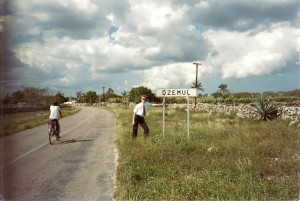 Elder Morgan holding up a sign in Mexico
Elder Morgan holding up a sign in Mexico
My current work-in-progress is realistic fiction. (More about that in a second.)
Me: Tell us about your writing process and your current work in progress. (See?)
Jason: Every story I write always starts with a “what if?” question. I get a general idea for the characters, setting and their final destination and then, I make it up as I go. I believe in the power of inspiration and discovery while I’m writing. Most of the best scenes I’ve written were spontaneous.
I plow through the first draft until the end. Then I let it sit while I work on another project. When I return to it, I rewrite it, often making drastic changes. The end result is usually quite different from the first draft.
My current work in progress is about a young man who moves from North Carolina to Utah right before his senior year in high school. He attends the same school where his mom and dad met–which brings with it certain pressures and baggage. I’ve set it in the late 1980’s (for a very specific plot reason) and so I’m having fun going retro with a lot of the elements in the book.
(I should have asked for a photo of Jason from the 80’s.)
Me: Let’s say you’ve got a week with no access to pen, paper, or computer device. What would you spend your time doing and why?
Jason: Well, I can interpret that question a few ways. I’m going to go with the idea that I’m not able to write for that week. I’d spend as much time as possible reading. I’ve found by reading different authors and genres, I improve as a writer. (Darn it. I should have cut off access to books and e-reader devices, as well. I’m just curious about what different writers do when they can’t read or writer.)
Me: Please describe your writing space, particularly anything unique about it, and provide a picture.
Jason: My wife and I share an office in our office. (That would never work for me. My husband loves company…and not in a quiet way.) I write using a wireless keyboard on my lap–don’t know why. On the wall above my computer monitor are copies of my books and awards I’ve won. They act as a reminder that I can do it, even if I’m struggling at the moment.
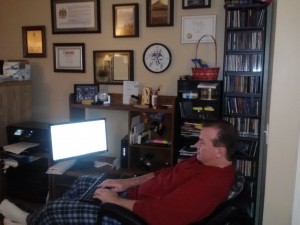 See all the awards? He CAN do it!
See all the awards? He CAN do it!
Me: Finally, I’m curious about the book you’ve written based on the songs of Chris de Burgh–THE MIRROR OF THE SOUL–due out early next year. How did this project come about and what is the premise of the story?
Jason: Chris de Burgh, known in the USA for “The Lady in Red” and “Don’t Pay the Ferryman,” has always been one of my favorite musicians. When the music scene changed in the 1990s his popularity in the States faded, but he still does very well all around the world.
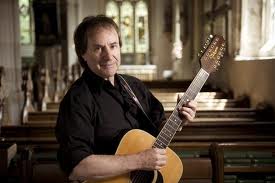 Chris de Burgh with his guitar
Chris de Burgh with his guitar
In 2006, he released a LP called “The Storyman.” On it is a song called “The Mirror of the Soul.” It’s a nine minute epic, telling of a large diamond that lands in France just after the Hundred Years War. The person who finds it discovers it glows when he touches it. He brings it to a local, corrupt Abbot, who takes the diamond because he believes with it he can gain power and money.
It’s really a metaphor about how people in our day use whatever they can to get gain and the results of doing so.
When I heard this song, I thought, Wow, this would make a great book. I got bold and contacted Chris de Burgh’s management. It took some (okay, a lot of) persistence, but I got a response. They liked the idea and asked for an outline to share with Chris.
In order to flush out the song to a full novel, I incorporated many of Chris’s other songs into the book, weaving their tales with the main story. Chris loved it and gave his permission and blessing. (Lucky!!!) I’m very excited for its release.
Thank you for the interview! I enjoyed it!
Likewise. And I’m also excited to read THE MIRROR OF THE SOUL…along with your upcoming anthology of short stories, THE NIGHT THE PORT-A-POTTY BURNED DOWN (due out in December).
For more information about Jason, his family, and his projects, check out his website.
And next week, I’ll be interviewing Marsha Ward, whose fourth volume in the Owen Family Saga–SPINSTER’S FOLLY–just came out.
Originally posted 2012-11-07 06:00:57.

